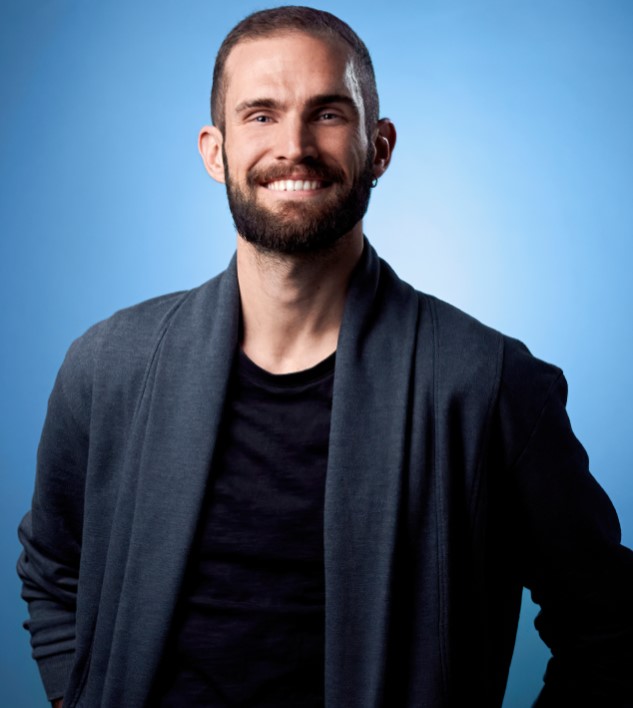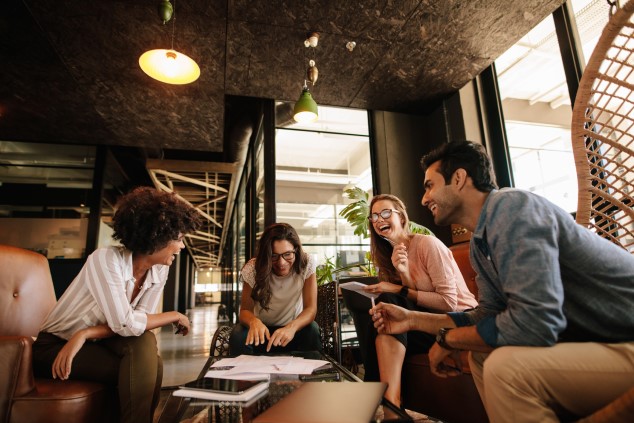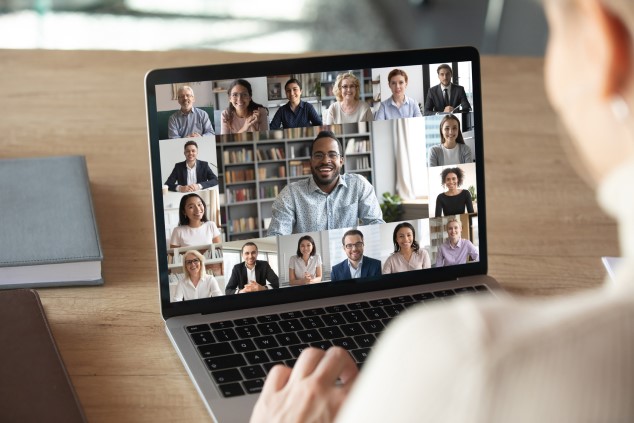In the series “Off Duty”, various members of the InterNations team share their personal stories about their global lifestyle and international experience.
This week, we had a chat with Alex, an expat from Spain as well as an InterNations Consul who hosts activities for the Munich Community. His mission? Helping people explore their true selves.

Can you tell me about your role as an InterNations Consul? How did you get started, and which group do you organize activities for?
I’m a Consul for the InterNations Munich Self-Discovery Group, a role that I took on in February 2019. When I moved to Munich, I wanted to continue facilitating workshops as I’d done back in Spain, as well as in Costa Rica and Senegal, both privately and professionally. I used to work mainly with young adults as a coach and counselor, but I wanted to keep developing my people skills regardless of anyone’s age. I also wanted to contribute to the expat community here in Munich.
Since I thought that InterNations provided the best platform for reaching an international audience, I decided to open a new InterNations Group and get started. Okay, technically speaking, I didn’t create a new group from scratch. At the time, there was already an inactive group related to wellness and spirituality. It didn’t have a Consul, but there were as many as 900 members in the group, who could be interested in what I was going to offer. So, the group seemed like a perfect fit — I just gave it a new name and explained the change in focus.

And what exactly do you do in the Munich Self-Discovery Group? Admittedly, the topic sounds somewhat abstract to me.
While self-discovery might sound a bit abstract, it does exactly what it implies. My group is all about discovering yourself, about finding out who you truly are. I enjoy helping people see where they come from and what their personal journey is in life. Going through this process can involve defining our core values or understanding how we’d like to relate to other people. For example, I’ve organized interactive group workshops dealing with implicit cultural beliefs and how they influence our behavior, workshops on meditation, and others using drama techniques for personal development — that last one was a lot of fun!
In pre-COVID-19 times, I hosted one workshop per month, normally a four-hour session with a short break in between. Since this is a rather time-consuming format and quite intense, it would usually take place on a Saturday or Sunday. On average, about a dozen people would attend my workshops. From my previous experience in youth work, I know that 10 to 15 participants is the maximum number of people you can still pay proper attention to and work with in such a setting. So, this was a very good turnout. I would start with an introduction to the topic, and then we would explore it together through practical exercises — I’m a big believer in experiential learning!
Where do your activities take place? Was it difficult to find a venue with enough privacy and space?
A suitable venue wasn’t that easy to find. I was originally looking at so-called coaching spaces, but they were far too expensive, and you couldn’t even cancel the booking, for example, if you got sick. Fortunately, some other team members were able to help: they suggested getting in touch with EineWeltHaus, a local event venue and cultural center located just down the road from our Munich offices. They agreed to let me book one of their meeting rooms for a very reasonable fee. Their core values — diversity and inclusion — are also aligned with what’s important to InterNations. It was a good match.
I would split the costs of the venue, the event materials, and some refreshments among the participants. The average InterNations member is a well-paid professional, and some attendants generously offered me more than their own share if they liked the workshop, telling me to reinvest the money in stationery or food for the next activity. But I never knew who exactly would show up — it wasn’t just affluent people with high-powered careers. Sometimes, there were also international students, as well as attendees between jobs, looking for a new path. This is something I really liked — that I got to meet people from all walks of life.

You mentioned “pre-COVID-19 times” earlier. How has the current coronavirus crisis changed this setup?
Even though the InterNations Ambassadors and Consuls in the Munich Community can now resume in-person events, I prefer to continue this new online format for the time being. At the interactive workshops I used to host before the lockdown, there were always exercises for people to do in pairs or small groups, where it would be hard to maintain physical distance. I’ve also noticed that members from other countries and communities — like Egypt, South Korea, Panama City, and Dubai — have started to join us, and not just once. Some of them now come to my activities regularly, so I would still like to give them this opportunity.
And what’s the new online format like?
I experimented with this a bit at first, but I’ve now found a format that seems to be working really well online. The activities take place on a weeknight, on a Wednesday or Thursday. They are “only” 90 minutes long, without a break in between. My goal is to give the attendees an introduction to the topic and an idea of what this kind of workshop can be like. When we finish, the participants are usually very excited and eager to learn more — of course, the learning process is far from over. They still have some “homework” to do. Sometimes, I actually do give them a few related tasks to complete. I just want to plant the seeds, so to speak, during these one-and-a-half hours; and then it’s up to the participants to nurture them and allow them to grow.

Can you tell me about your favorite workshops, both online and in person?
There have been several workshops that I found very inspiring. For example, I hosted one about the grieving process. I don’t just mean grieving over the death of a loved one. You can also go through a kind of “mourning period” after a breakup, after moving to another country, and so on. Whether or not it’s over someone who died, grief is quite a sensitive and personal topic. So, this workshop required a very careful, gentle approach and took me a lot of time to prepare. It felt really special in the end, though. As for the online activities I’ve organized so far, I’ve enjoyed the creativity workshop the most since the topic is something I’m especially interested in.
What do you mean by “creativity workshop”? Was it a talk about creativity techniques, such as mind-mapping?
No, it was about something more fundamental. Creativity is often considered an intrinsic quality that you either do or do not have. And if you do have it, you must be an artistic person, for example, a musician or a designer. But for me, creativity is more of an attitude, a specific way of living your life. Everyone has the potential to be creative, but just like, say, sports or foreign languages, you need to practice and do your exercises. You have to train to see things from different perspectives and to think outside the box. But you don’t need to be an artist to bring out that part of yourself.
You can apply your creativity in everyday life in very different ways. Some people put their creative energy into cooking elaborate meals for their partner or decorating their home, others get creative when it comes to organizing their personal schedule and managing their daily routines. The members who joined this workshop had a wide range of motivations for attending. There was one person who was a writer and wanted to focus more on creativity in an artistic sense, while others were more interested in practical approaches. So, this was my favorite online activity to date.

You mentioned before that your decision to create this group was inspired by your previous career as a coach and facilitator. But has your role as a Consul also had an impact on your current job as Community Engagement Specialist?
Yes, it has definitely had an influence on the way I work. First of all, I have a greater sense of empathy for the challenges that our Ambassadors and Consuls may encounter and the uncertainty they may feel sometimes. For example, when I came to Munich, I didn’t have a clue about how to find a great venue for my activities. Other Consuls may have similar difficulties in an unfamiliar environment or in a place where they aren’t fluent in the local language.
I also had to come up with a creative solution to the age-old problem of “no-shows” — members who sign up to an activity but then neither cancel nor attend. In my event description, I now ask everyone to send me a personal confirmation message before the workshop if they actually plan to join; the first 15 people who do so are in. This has helped me organize and prepare my activities, and other InterNations Consuls can benefit from my experiences too.
But being a Consul has also changed the way the InterNations Ambassadors and Consuls in my communities interact with me. Because I’m also “on the ground”, they trust me to give them helpful advice and regard me as their peer. This makes it easier for me to motivate them and encourage them to take ownership of their events.
Image credit: InterNations / iStockphoto